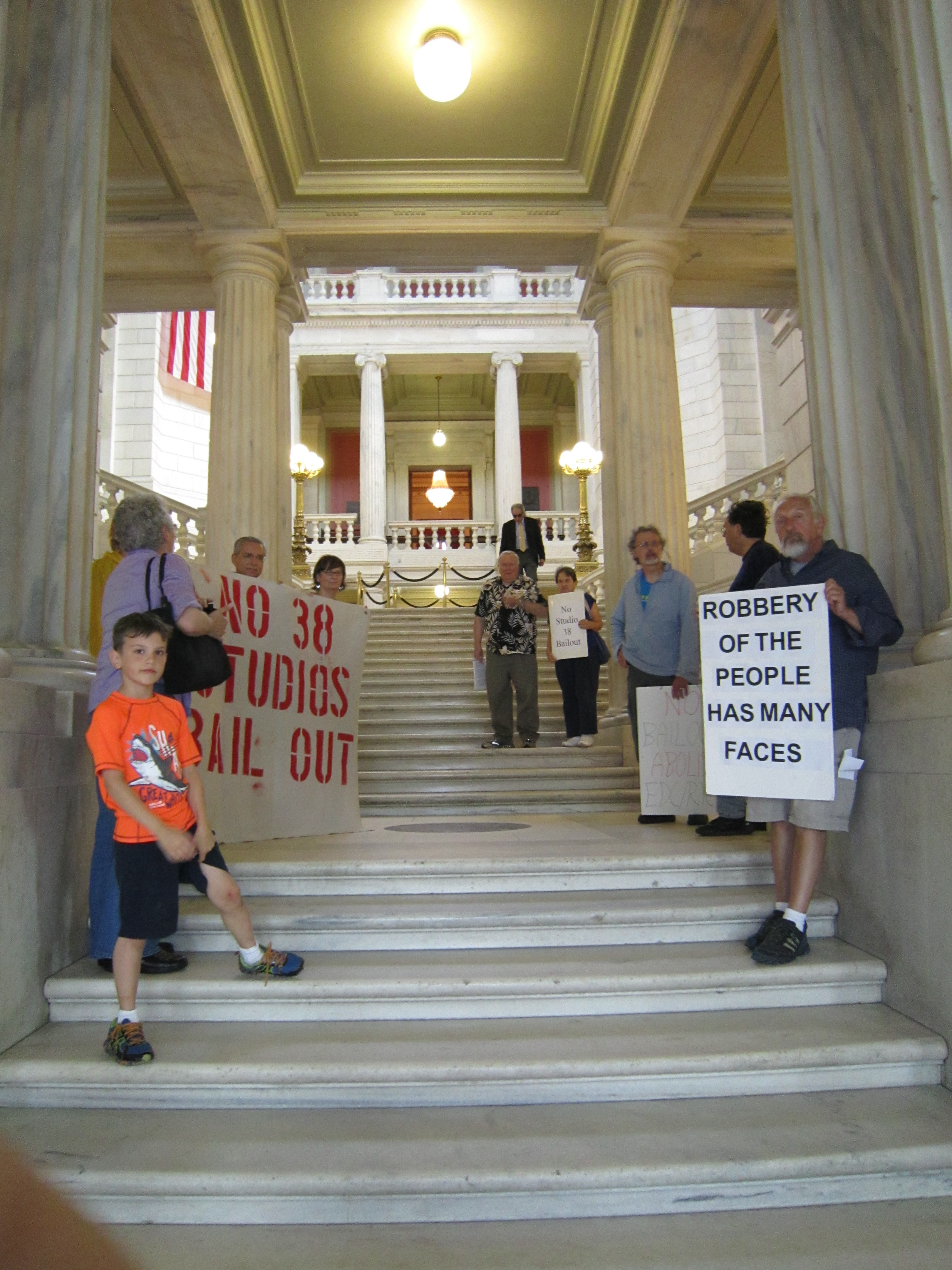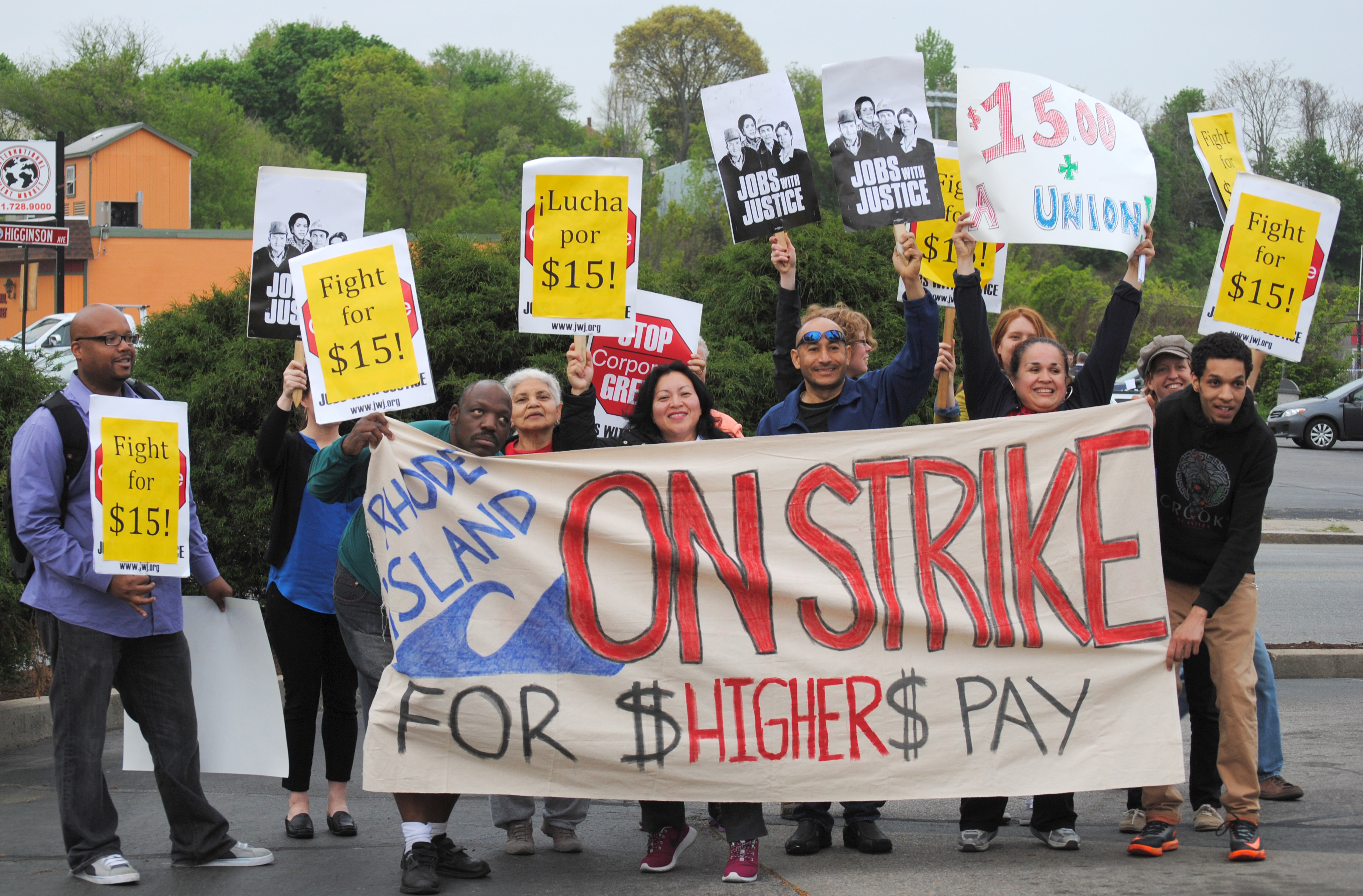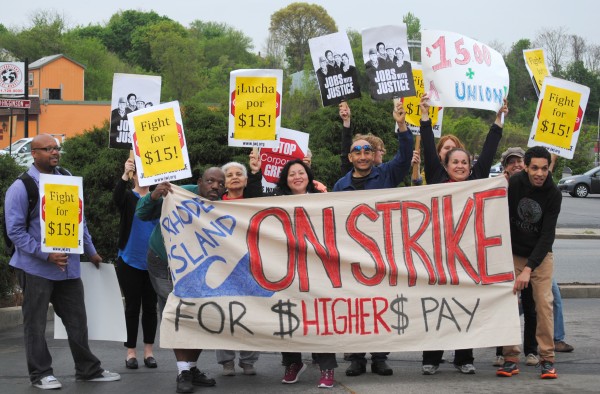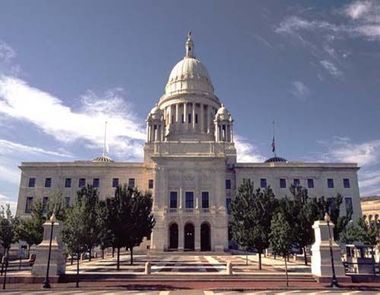Yesterday, there was a protest at the State House against the 38 Studios bailout. Let me cite from the announcement over at the Occupy Providence website.

This one of the worst shady deals that politicians have made in Rhode Island. Now, they are trying to stick the People with the bill.
Wall Street has weighed in, trying to pressure the State to use the People’s money to bail out this bad deal for which the People never asked. Should Rhode Island be a place where insider deals get made behind the scenes, while those who hope to profit from these shady deals can be sure of getting paid at the People’s expense?
The Rhode Island will never have a solid economy until it shakes its reputation for paying off these shady deals. Refusing to bail out 38 Studios debt will help put the State on the right track by discouraging other bad deals in the future. The State will be much better off it shows it is willing to resist Wall Streets pressure for a bailout.
38 Studios debt is not the People’s debt; let the insurance company that insured the deal pay!
What else needs to happen
Christopher Currie was at a State House with a handout containing the following article of the Rhode Island State Constitution:
ARTICLE VI (OF THE LEGISLATIVE POWER)
Section 16. Borrowing power of general assembly. — The general assembly shall have no powers, without the express consent of the people, to incur state debts to an amount exceeding fifty thousand dollars, except in time of war, or in case of insurrection or invasion; nor shall it in any case, without such consent, pledge the faith of the state for the payment of the obligations of others. This section shall not be construed to refer to any money that may be deposited with the state by the government of the United States.
Conventional 1% wisdom, equipped with massive amounts of neo-liberalist economic theory and ruling class case law, will solemnly explain that this article does not apply to the 38 Studio situation. As to the economic part of the argument, this summary of Chris Hedges will suffice:
Unfettered capitalism is a revolutionary force that consumes greater and greater numbers of human lives until it finally consumes itself.
Those who are not willfully blind can see this destruction develop in front of their eyes, but there is and alternative (TIA)
This is how we’ll be competitive in a resilient, local economy, while we say farewell to self-destructive neo-liberalism for the few:
Workers will create their cooperative businesses owned by the folks who do the actual work. Nobody wants to be a wage slave in a medieval, 1% fiefdom! The folks who will run these places will take good care of them. They will not threaten to leave the State to get special deals. No, they’ll be good citizens who won’t indulge in the smug blackmail of the self-entitled rich.
Those co-op folks will be our fellow Rhode Islanders and neighbors. They will live here among us with their families and friends. They will cherish our communities and they will heal Mother Earth the ravages the rich have visited upon her.
As we say farewell to the destructive capitalism for and by the Vampire class, and kiss its capital and its “investments” goodbye, we’ll build a local economy with food security, and clean water and fresh air for all. We’ll have a power grid owned and operated locally and cooperatively by the People for the People.
We’ll make an end to a system that creates borders for people and maintains global inequality and racism. We’ll put an end to NAFTA-, TAFTA-, TPP-globalization, which removes those borders to free the United Corporations of the World so they can destroy human solidarity and increase inequality and poverty, which Gandhi saw as the worst kind of violence of all.
As to the State Constitution, it is a living document. Let’s blow new life into it on the People’s terms!
This is what non-violent revolution looks like; cursed be 1% case law be and the predator economy! We need system change; bailouts do nothing but perpetuate the current system.





